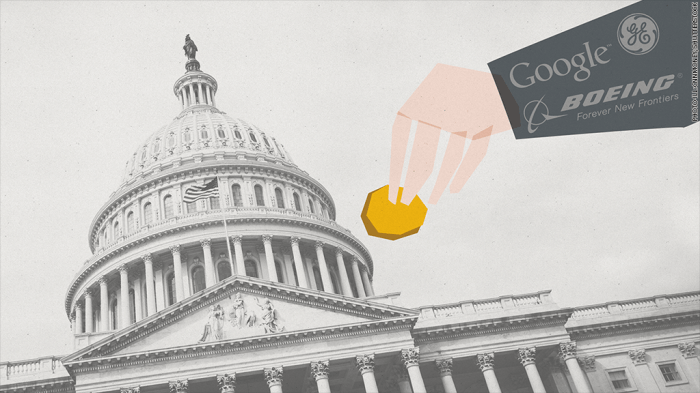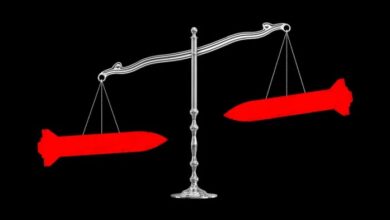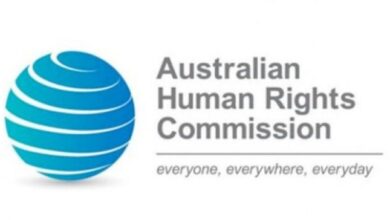
What US Lobbyists Do for Dictators: A Shadowy World
What US lobbyists do for dictators is a topic shrouded in secrecy and controversy. It’s a world where power, money, and influence intertwine, often at the expense of human rights and democratic values. While lobbying is a legitimate practice in democratic societies, its application in the realm of authoritarian regimes raises serious ethical questions.
This article delves into the murky world of lobbying for dictators, examining the methods employed, the motivations behind them, and the impact on both the dictatorships themselves and the international community. We’ll explore the legal and ethical frameworks surrounding this practice, as well as the challenges and opportunities for reform.
Lobbying Activities for Dictators

Lobbying for dictators is a complex and often controversial practice, involving a range of strategies and motivations. It involves individuals or organizations seeking to influence government policies in favor of authoritarian regimes, often for financial gain or political objectives. This can involve a range of tactics, from public relations campaigns to direct lobbying of decision-makers.
You might think of lobbyists as working for big corporations, but they also play a crucial role in helping dictators maintain power. They can shape public opinion, influence legislation, and even provide access to international markets. This often involves framing a dictator’s actions in a positive light, which is where the saying “war needs good public relations” comes in, as explained in this insightful article war needs good public relations.
Lobbyists can help spin narratives that justify military actions or suppress dissent, ensuring the dictator’s grip on power remains strong.
Examples of Lobbying Efforts for Dictators
Lobbying efforts for dictators can take various forms, each with its own set of tactics and goals. Here are some examples:
- Public Relations Campaigns:These campaigns aim to improve the image of dictators and their regimes in the international community. This often involves disseminating positive narratives about the dictator’s policies and achievements, while downplaying or denying human rights abuses and other controversial actions.
For example, the regime of Augusto Pinochet in Chile employed public relations firms to promote its economic reforms and present a more favorable image to the world, despite its history of human rights violations.
- Direct Lobbying of Decision-Makers:Lobbyists can engage in direct lobbying of government officials, lawmakers, and other decision-makers in target countries. This can involve meetings, phone calls, and written communications aimed at influencing policy decisions in favor of the dictator’s regime. For instance, during the Cold War, lobbyists representing authoritarian regimes in Eastern Europe and the Soviet Union often sought to influence American policymakers to adopt more favorable policies towards their governments.
You might be surprised to learn that US lobbyists sometimes work for dictators, even those with controversial agendas. One example of this is the lobbying efforts surrounding north korea and nuclear weapons. These lobbyists might argue for lifting sanctions or easing diplomatic pressure, all in the name of “stability” and “dialogue,” while ultimately serving the interests of a repressive regime.
- Financial Incentives:Some lobbying efforts involve offering financial incentives to decision-makers or their allies in target countries. This can include direct payments, campaign contributions, or investments in businesses owned by influential individuals. These incentives can be used to gain access to decision-makers and secure favorable policies for the dictator’s regime.
Lobbyists, for dictators, can often be found weaving intricate webs of influence, seeking to shield their clients from international scrutiny. They might, for example, try to downplay the human rights abuses of their clients while simultaneously advocating for access to global markets.
This can lead to a dangerous cycle of unchecked power and corruption, exacerbated by the scale of the debt crisis that often burdens these regimes, further strengthening their dependence on external actors. Ultimately, the actions of lobbyists can have a profound impact on the stability and well-being of nations, often in ways that are not immediately apparent.
A prominent example is the case of Equatorial Guinea, where the regime of Teodoro Obiang Nguema has been accused of using oil wealth to bribe foreign officials and secure their support.
Methods Used by Lobbyists to Influence Decision-Makers
Lobbyists employ a variety of methods to gain access to and influence decision-makers in target countries:
- Networking and Building Relationships:Lobbyists often focus on building relationships with influential individuals, including politicians, policymakers, and journalists. This involves attending events, organizing meetings, and engaging in informal conversations to cultivate trust and rapport.
- Providing Information and Expertise:Lobbyists can present themselves as experts on the dictator’s regime and its policies, providing information and analysis to decision-makers. This can involve disseminating reports, articles, and other materials that present a favorable view of the dictator’s regime.
- Campaign Contributions and Political Donations:Lobbyists may provide financial support to political campaigns and candidates who are sympathetic to the dictator’s regime. This can involve direct donations, fundraising events, and other forms of financial assistance.
- Public Relations and Media Strategies:Lobbyists may employ public relations strategies to shape public opinion and influence media coverage. This can involve issuing press releases, organizing events, and engaging with journalists to promote a favorable narrative about the dictator’s regime.
Motivations Behind Lobbying for Dictators
The motivations behind lobbying for dictators are multifaceted, encompassing both financial and political objectives:
- Financial Gain:Lobbyists may seek financial gain by representing dictators and their regimes. This can involve lucrative contracts for public relations services, legal advice, or other services. In some cases, lobbyists may also receive direct payments or investments in exchange for their services.
- Political Objectives:Lobbyists may also be motivated by political objectives, such as seeking to advance the interests of their own country or ideology. For example, some lobbyists may support dictators who are seen as allies in the fight against communism or terrorism.
In other cases, lobbyists may be motivated by a desire to promote a particular political system or ideology, such as authoritarianism or nationalism.
- Ideological Beliefs:Some individuals may genuinely believe that dictators are necessary for stability and economic development, and therefore support their regimes. This belief can be driven by a range of factors, including a belief in strong leadership, a fear of chaos and instability, or a conviction that democratic systems are ineffective.
The Legal and Ethical Framework of Lobbying: What Us Lobbyists Do For Dictators

Lobbying, the act of influencing government decisions, is a complex and multifaceted practice with significant ethical and legal implications, particularly when it involves authoritarian regimes. This section delves into the international legal framework governing lobbying activities and examines the ethical principles that should guide such endeavors.
International Legal Framework for Lobbying
The international legal framework governing lobbying is fragmented and often lacks clarity, particularly when it comes to lobbying activities for authoritarian regimes. While some international conventions address specific aspects of lobbying, such as the OECD Convention on Combating Bribery of Foreign Public Officials in International Business Transactions, a comprehensive global legal framework for lobbying remains elusive.
- Transparency and Disclosure:The OECD Convention emphasizes the importance of transparency in lobbying activities, urging signatory countries to implement robust disclosure requirements for lobbying efforts. This includes disclosing the identity of lobbyists, their clients, and the nature of their activities.
- Prohibition of Bribery and Corruption:The Convention explicitly prohibits bribery and corruption in international business transactions, including lobbying activities. This means that lobbyists must refrain from offering or accepting bribes to influence government decisions.
- National Legislation:Many countries have their own national laws governing lobbying, often with varying degrees of stringency. These laws typically cover aspects such as registration requirements, disclosure obligations, and restrictions on certain lobbying practices. For example, the United States has the Lobbying Disclosure Act, which requires lobbyists to register and report their activities.
Ethical Principles for Lobbying for Dictators, What us lobbyists do for dictators
Lobbying for dictatorships presents a unique set of ethical challenges, as it involves engaging with governments that often violate human rights, suppress dissent, and undermine democratic principles. The ethical considerations in this context are complex and require careful scrutiny.
- Respect for Human Rights:Lobbyists should prioritize the protection of human rights and ensure that their activities do not contribute to the suppression of dissent, the violation of fundamental freedoms, or the perpetuation of authoritarian rule.
- Transparency and Accountability:Lobbyists should operate with transparency and accountability, disclosing their clients, their activities, and their sources of funding. This helps to prevent conflicts of interest and promotes public trust.
- Professional Integrity:Lobbyists must maintain professional integrity, acting in a truthful and honest manner, and avoiding any actions that could compromise their reputation or erode public trust.
Ethical Considerations and Conflicts of Interest
The table below Artikels key ethical considerations and potential conflicts of interest that arise when lobbying for authoritarian regimes.
| Ethical Consideration | Potential Conflict of Interest | Example |
|---|---|---|
| Respect for Human Rights | Lobbying for a regime that violates human rights can lead to a conflict between the lobbyist’s personal values and the interests of their client. | A lobbyist working for a government known for suppressing dissent may face ethical dilemmas if they are asked to advocate for policies that further restrict freedom of speech. |
| Transparency and Accountability | Lobbyists may be tempted to conceal their clients’ identities or the nature of their activities to avoid public scrutiny or criticism. | A lobbyist might not disclose their work for a regime with a history of corruption, fearing negative public reaction. |
| Professional Integrity | Lobbyists may face pressure to make misleading or exaggerated claims about their clients’ policies or actions. | A lobbyist might be asked to downplay the regime’s human rights abuses or promote false narratives about its economic progress. |
The Future of Lobbying and Dictatorships
The relationship between lobbying and dictatorships is a complex and evolving one. As technology advances and global interconnectedness increases, the ways in which authoritarian regimes can influence international actors are changing. This necessitates a critical examination of the potential future of lobbying in the context of dictatorships and the challenges and opportunities for reforming lobbying regulations to prevent abuses.
The Evolving Landscape of Lobbying
The digital age has significantly impacted lobbying practices. Dictatorships are increasingly utilizing online platforms, social media, and sophisticated propaganda campaigns to shape public opinion and influence decision-making processes in democratic countries. This has created new avenues for lobbying, allowing dictatorships to bypass traditional channels and reach a wider audience.
For instance, the use of social media bots and fake accounts to spread misinformation and influence public discourse has become a concerning trend.
Challenges and Opportunities for Reform
The evolving nature of lobbying practices presents significant challenges for policymakers and international organizations seeking to reform lobbying regulations. These challenges include:
- Identifying and Regulating Non-Traditional Lobbying Activities:Traditional lobbying regulations often focus on direct interactions with government officials. However, the rise of online propaganda campaigns and the use of social media bots requires new approaches to identify and regulate these activities.
- Transparency and Accountability:Ensuring transparency and accountability in lobbying activities is crucial to prevent abuses. However, dictatorships often operate in secrecy, making it difficult to track their lobbying efforts and hold them accountable.
- International Cooperation:Effective reform requires international cooperation. Dictatorships may seek to exploit loopholes in regulations or operate in jurisdictions with weak enforcement mechanisms. International cooperation is essential to establish a level playing field and prevent regulatory arbitrage.
Despite these challenges, there are opportunities for reform. These include:
- Strengthening Transparency Requirements:Policymakers can strengthen transparency requirements for lobbying activities, requiring disclosure of funding sources, lobbying targets, and the nature of the lobbying efforts.
- Developing Robust Enforcement Mechanisms:Robust enforcement mechanisms are crucial to deter abuses and ensure compliance with lobbying regulations. This may involve increasing penalties for violations and establishing independent bodies to monitor lobbying activities.
- Promoting International Collaboration:International collaboration is essential to address the global nature of lobbying. This may involve sharing information, coordinating enforcement efforts, and developing common standards for regulating lobbying activities.
Recommendations for Policymakers and International Organizations
To address the ethical concerns surrounding lobbying for dictators, policymakers and international organizations can consider the following recommendations:
- Establish Clear Ethical Guidelines:Clear ethical guidelines should be established for lobbying activities, explicitly prohibiting the use of deceptive or manipulative tactics, and promoting transparency and accountability.
- Promote Public Awareness:Public awareness campaigns can educate citizens about the risks of lobbying by dictatorships and empower them to hold their governments accountable.
- Develop Mechanisms for Identifying and Sanctioning Abusive Lobbying Practices:Mechanisms should be developed to identify and sanction abusive lobbying practices, including the use of propaganda, misinformation, and other forms of manipulation.
- Support Independent Media and Civil Society Organizations:Supporting independent media and civil society organizations can help counter the influence of dictatorships and promote a more informed public discourse.






